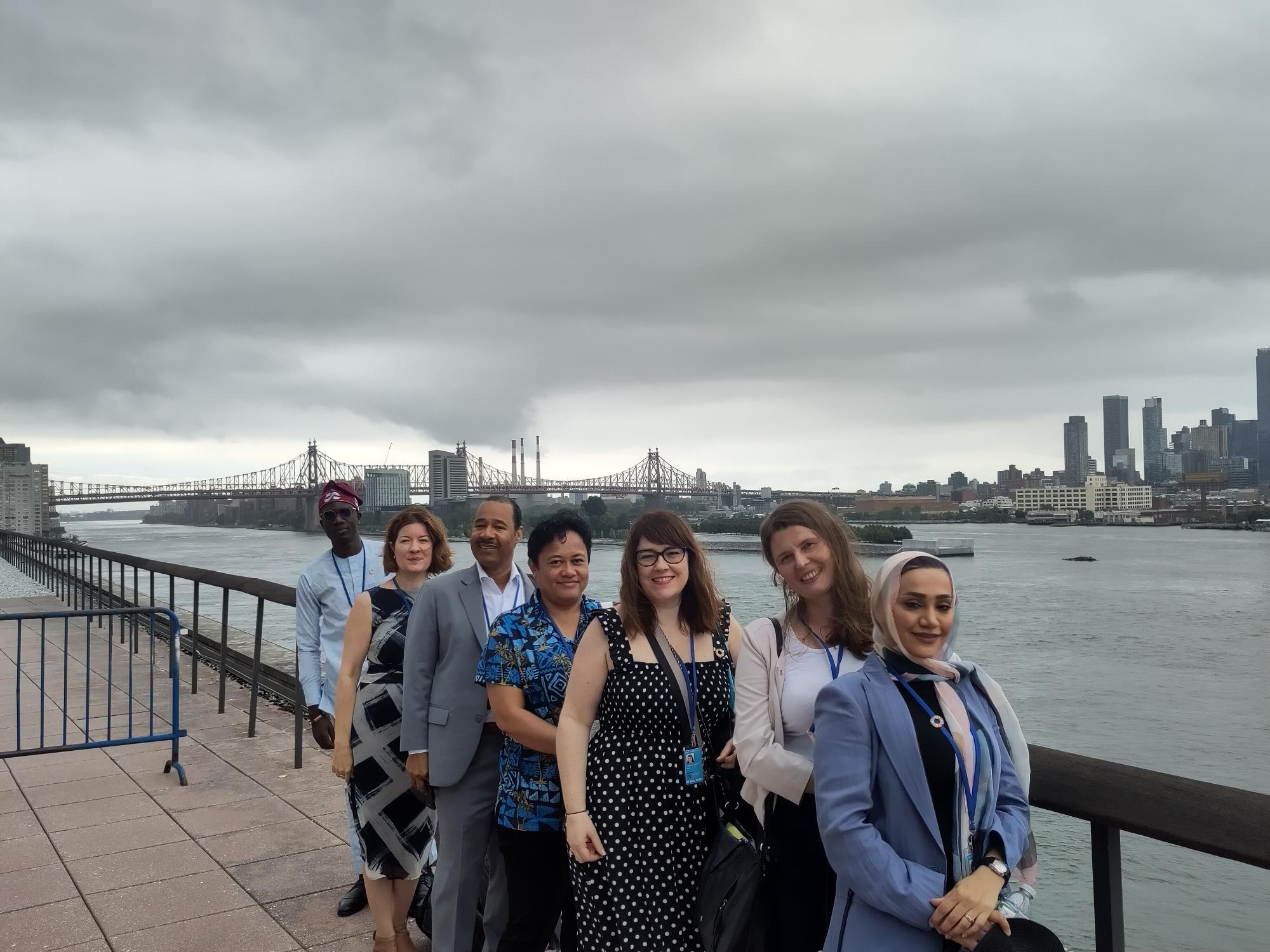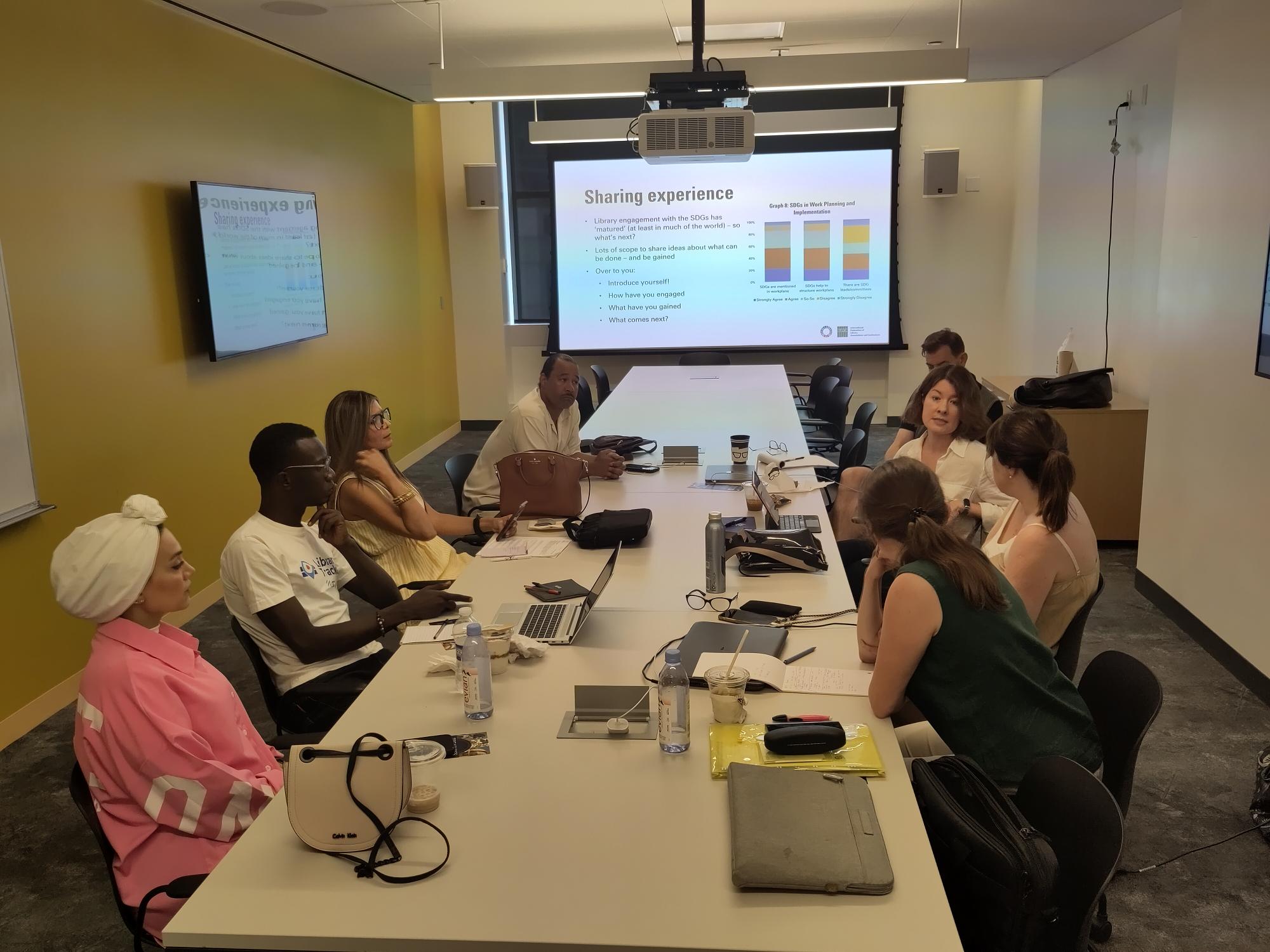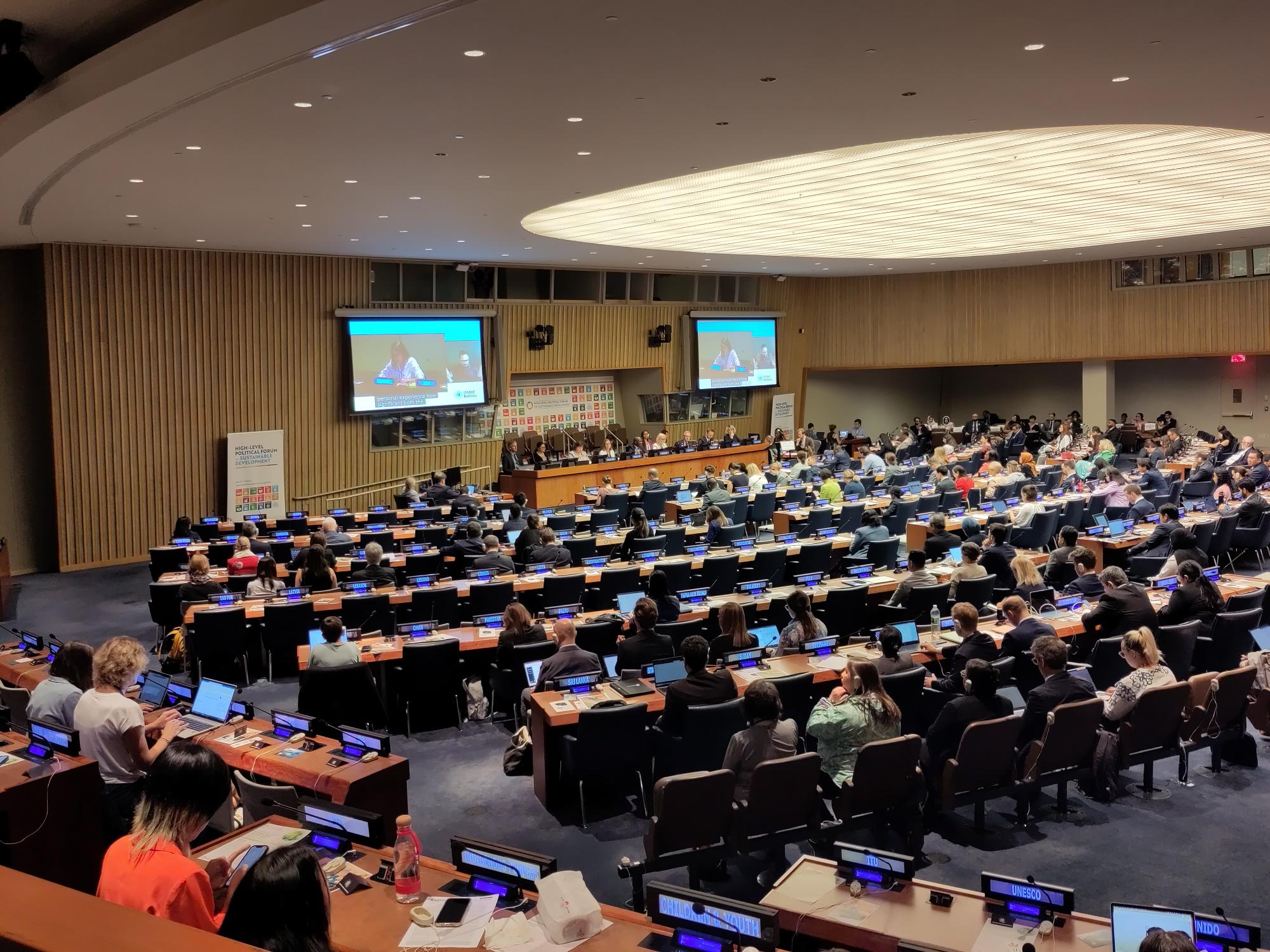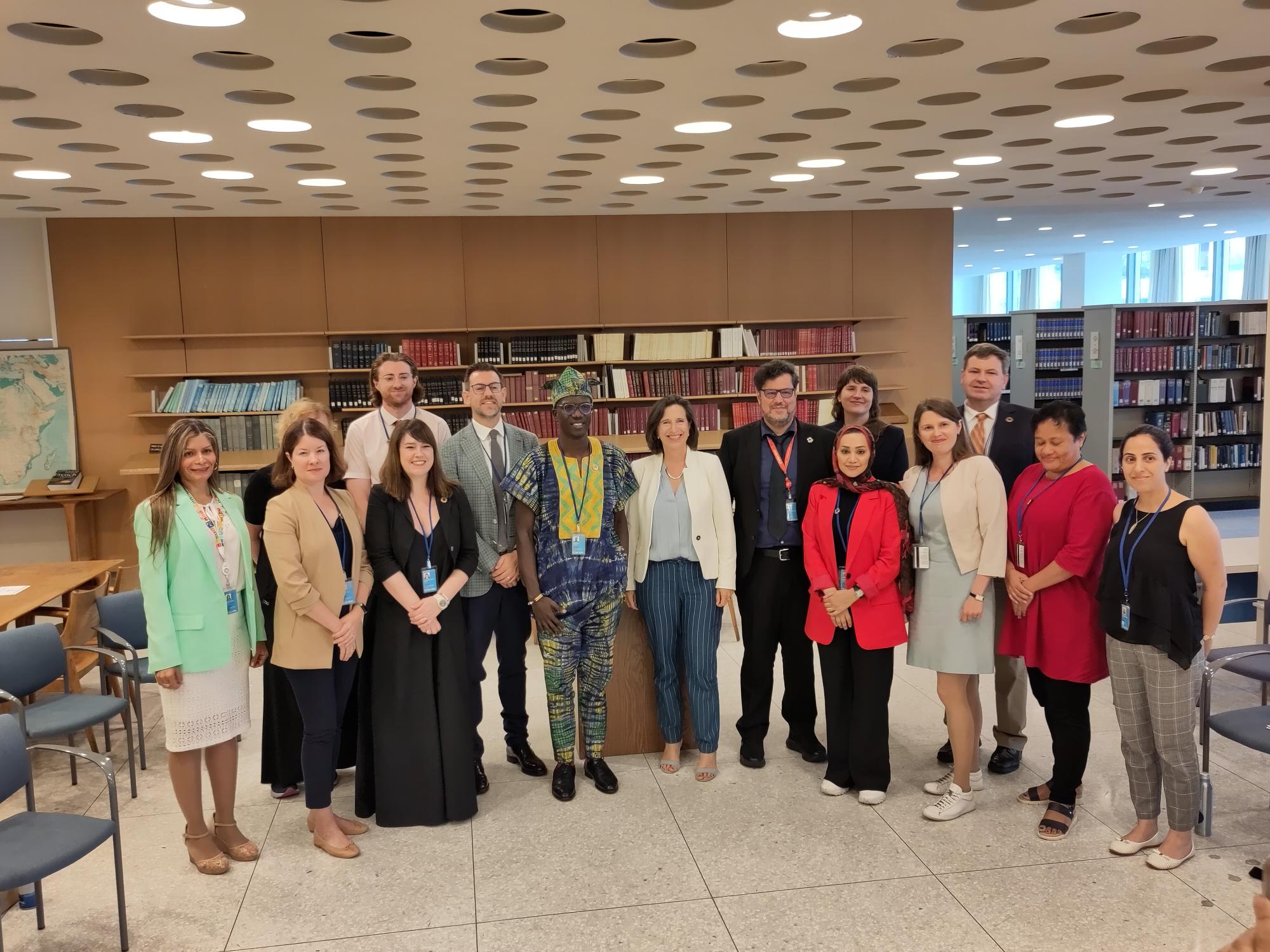Libraries, information and culture catalysing development: UN High-Level Political Forum 2023
08 August 2023
Libraries were on show at the UN High-Level Political Forum 2023, with representatives from every continent underlining both the reach and depth of our contribution to achieving the Sustainable Development Goals.

2023 is an important year in the UN’s 2030 Agenda, marking its half-way point. The Agenda as a whole is intended not just to be a roadmap for sustainable development for people and planet, but also a motivator to accelerate efforts and do things differently.
The High Level Political Forum (HLPF) is perhaps the key moment in the annual calendar for the Agenda and its 17 Sustainable Development Goals (SDGs). At this, governments, UN agencies, experts and civil society come together over two weeks to review progress, and in particular to hear from national governments about their efforts to implement the Goals.
An additional focus this year was on preparing the formal half-way point in Agenda – the SDG Summit in September, as well as on the emerging plans for building the UN’s own capacity to deliver through the Summit of the Future planned for 2024.

A great library team
For a second year, thanks to the support of Stichting IFLA Global Libraries, it was possible to build a strong delegation with representatives from libraries on every continent.
The team came from countries undertaking Voluntary National Review of implementation of the SDGs, with the primary aim of using the opportunity provided by the Forum not just to advocate for libraries as partners for development in general, but also to engage with their own governmental delegations.
The library representatives were Nina Nakaora (Fiji), Athra Al Alawi (Bahrain), Damilare Oyedele (Rwanda/Nigeria), Magdalena Gomulka (Poland), Stuart Hamilton (Ireland), Paula Larraín Larraín (Chile), and Christina de Castell (Canada). Julius Jefferson, Loida Garcia Febo and Zena George (United States) also joined, providing great support.
Being together provided a chance to learn from each other about how to work most effectively with the SDGs, and start to gather a collection of examples that will be used to build an SDG engagement toolkit in future.
At a training session kindly hosted by the Stavros Niarchos Foundation Public Library, the IFLA team shared the lessons learned from their own work, and in particular successes in terms of new contacts and recognition in official documents.

Building national connections
As highlighted, a key goal of bringing librarians to the UN was the possibility to engage with ministers, ambassadors and other decision-makers in a more direct way than is possible at home.
The library team all achieved this, meeting with their Ministers and Ambassadors, and using the opportunity to talk with them about how libraries can help achieve their commitments under the 2030 Agenda.
Crucially, the contacts made at the UN are likely to be different to the ones that libraries usually work with, making it possible to broaden support for libraries. It is also often the case that the ministries or agencies responsible for the SDGs are happy to find potential partners happy to promote the Goals.
Changing perceptions of libraries
Another key objective for the delegation was to work to ensure that a wide range of stakeholders, inside and outside of government, left with an up-to-date impression of libraries as dynamic, innovative, and responsive players, with a role to play across development agendas.
Through this, we help address the fact that, too often, libraries are seen as being old-fashioned, or having only a very narrow focus on some elements of culture, education or research. Of course these are important, but libraries’ contribution is far broader.
Our delegation therefore engaged across different events, raising questions, making comments, and meeting directly with national and international officials to tell the story of libraries’ contributions. A particularly powerful moment was when Magdalena Gomulka, our Polish representative, was able to take the floor in the plenary session, during Poland’s Voluntary National Review, and highlight the different ways in which libraries had helped Ukrainians fleeing war who had come to the country.

Guardians of information integrity
A key highlight was the side-event held in person with the UN Library, focused on how library experience and actions contribute to the achievement of the goals of the draft Code of Conduct on Information Integrity.
This document already touches on a range of areas where there is strong potential for libraries to be part of finding solutions. The session focused on four specifics – notably how libraries can support fact-checking and local media, media and information literacy skills, build trust and confidence online more broadly, and help people work better around AI.
Our delegation members spoke from their own experiences, highlighting the breadth and depth of how libraries can contribute, and stressing where it will be important therefore to facilitate this contribution.
We are very grateful to the UN Library team for their support in organising this session, and will share more shortly.
Promoting culture
A final core goal was around underlining the need to recognise fully the role of culture in supporting sustainable development. This is a fundamental weakness of the 2030 Agenda, which refers only minimally to the role of culture in supporting change.
IFLA, as a founding member of the Culture2030Goal campaign, has been very active in promoting stronger recognition, as a means of mobilising the potential of cultural actors and factors. This year, as last year, we produced an overview of the place of culture in Voluntary National Reviews, demonstrating in particular the feasibility of a culture goal.
Our delegation, through its interventions alongside the work of UNESCO, therefore encouraged references to culture, in particular in the Declaration from the upcoming SDG Summit in September, and had the welcome news that the latest draft indeed includes a paragraph on the subject.
At the half-way point in the 2030 Agenda, the successful engagement of librarians around the world at the High-Level Political Forum marks a new high point in our work in this space. We look forward to seeing the benefits of this – at the national, regional and global levels – over the coming months and years.
We are grateful to Stichting IFLA Global Libraries for making this work possible through their financial support.